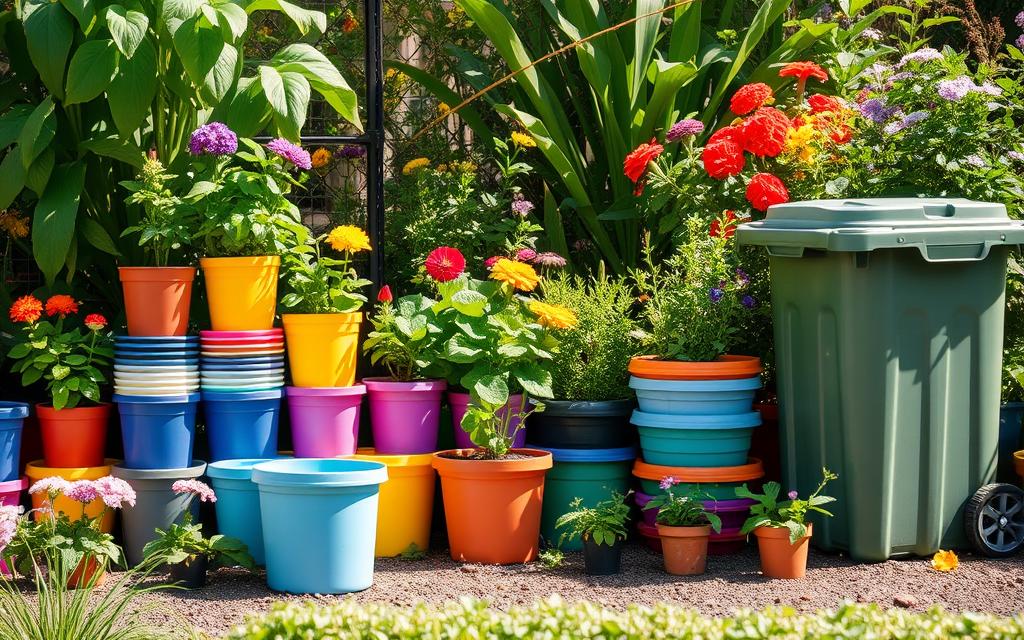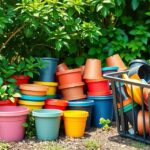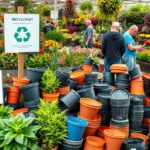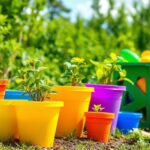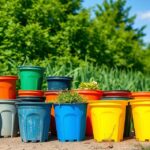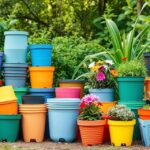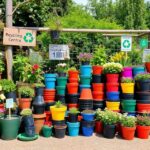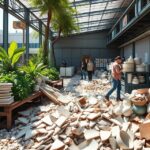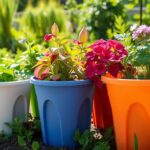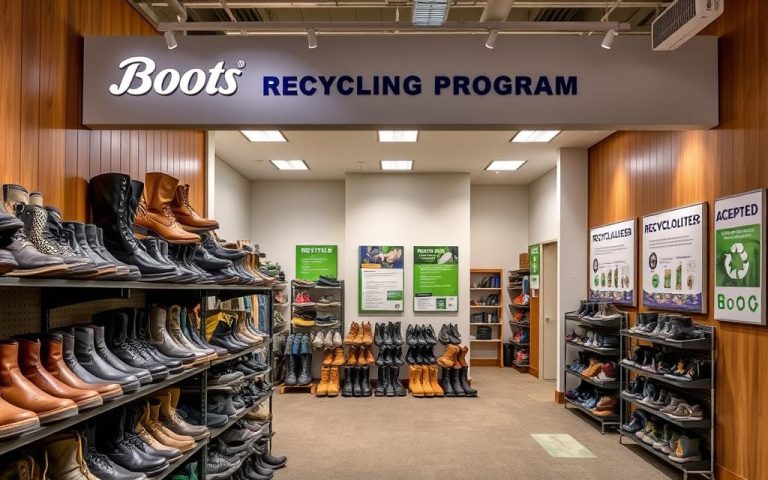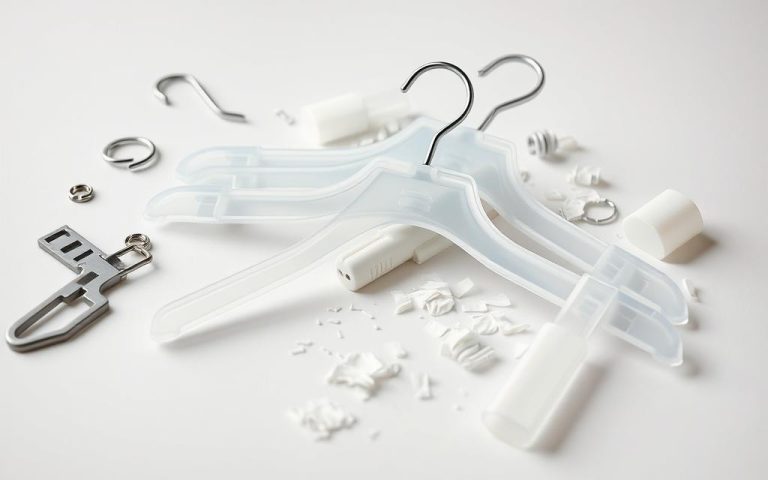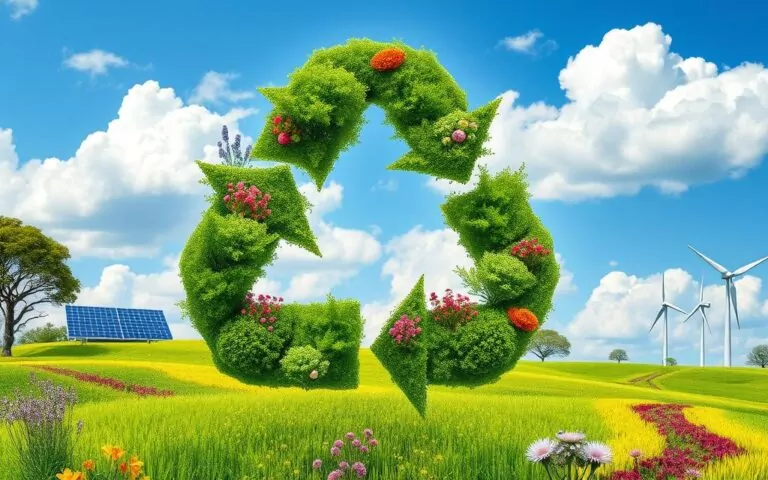Can You Recycle Plastic Pots? Responsible Disposal Options
Many gardeners want to know if they can recycle plastic pots. As we buy more plants for occasions like Mother’s Day, the question becomes even more important. It’s crucial to find out how to dispose of these pots responsibly to help the environment.
Yes, a lot of plastic pots can go in the blue bin with metals and cartons. But first, check what kind of plastic they are. Sadly, items like ceramic and terra cotta can’t be recycled in the same way. This shows the importance of knowing how to handle garden waste.
We’ll look into how to recycle pots and other smart options. For example, you can give old pots a new life or take them back to the garden centre. By exploring these paths, we can all contribute to a healthier planet.
Understanding Plastic Pots and Their Types
Plastic pots are often seen in garden centres. They house everything from flowers to veggies. With plastic waste being a big concern, it’s vital to know about the types of plastics in plant pots. Different plastics can be recycled in various ways, affecting how we dispose of them. This section explores the common plastics used in plant pots. It highlights why plastic identification is key for recycling decisions.
Common Types of Plastics Used in Plant Pots
Plant pots are made from certain plastics. These are marked with special recycling symbols. They help us identify them quickly. Here are the ones often used:
- High Density Polyethylene (HDPE) – Shown with #2, found in nursery pots.
- Polypropylene – Known by #5, used for strong containers.
- Polystyrene – With #6, seen in disposable items.
Recycling centres usually take plastics labelled one to seven. This makes recycling easier. Places like New Hanover and Brunswick in North Carolina take them. Stores like Lowe’s help by recycling pots at Metrolina Greenhouses.
The Importance of Identifying Plastic Numbers
Knowing the recycling symbols on pots is very important. It lets us figure out which plastics we can recycle. This helps us make better choices about how to throw things away. For instance, PET plastic (#1) is widely recycled. But, not all places take materials like polystyrene.
Lately, efforts like Virginia Gardeners Recycle have made a big impact. They’ve collected a lot of plastic pots for recycling. This shows how community efforts can help recycling. Learning about plastic identification can push this even further. It encourages us to be more eco-friendly in our gardening.
For help with recycling, you can visit your local Cooperative Extension office. They offer guidance on how to properly dispose of garden plastics. This helps our environment stay healthy.
For the latest on plastic pot recycling, check this informative update.
Can You Recycle Plastic Pots? The Truth Revealed
To understand how to recycle plastic pots, it’s key to know which plastics recycling centres will take. Most garden pots are thrown away due to false beliefs about recycling. We will discuss what you can recycle and why staying clean is crucial to prevent contamination in recycling.
Recycling Facilities and Accepted Plastics
There are many types of plastic pots, but only some are recyclable. Coloured pots, like green or red ones, can be recycled if cleaned properly. However, black plastic pots are usually not recyclable because of the carbon inks used. Sadly, 95-98 percent of plant pots end up in landfill, showing a big problem with disposing of them rightly.
| Type of Pot | Recyclable? | Comments |
|---|---|---|
| Green Plastic Pots | Yes | Must be cleaned |
| Blue Plastic Pots | Yes | Must be cleaned |
| Red Plastic Pots | Yes | Must be cleaned |
| Black Plastic Pots | No | Non-recyclable due to dye |
| Compostable Pots | Yes | Considered eco-friendly alternatives |
Contamination Issues: Why Cleanliness Matters
Contamination in recycling is a big hurdle. Soil left in pots can ruin a batch of recyclables. By keeping recyclables clean, communities can earn more from recyclable materials. Just washing pots or removing leftover soil can help them get recycled more easily.
Although some residue might be okay, too much causes materials to be left out. Following local cleaning rules helps, as different centres handle contamination differently. High recycling standards not only save the environment but also cut landfill costs.
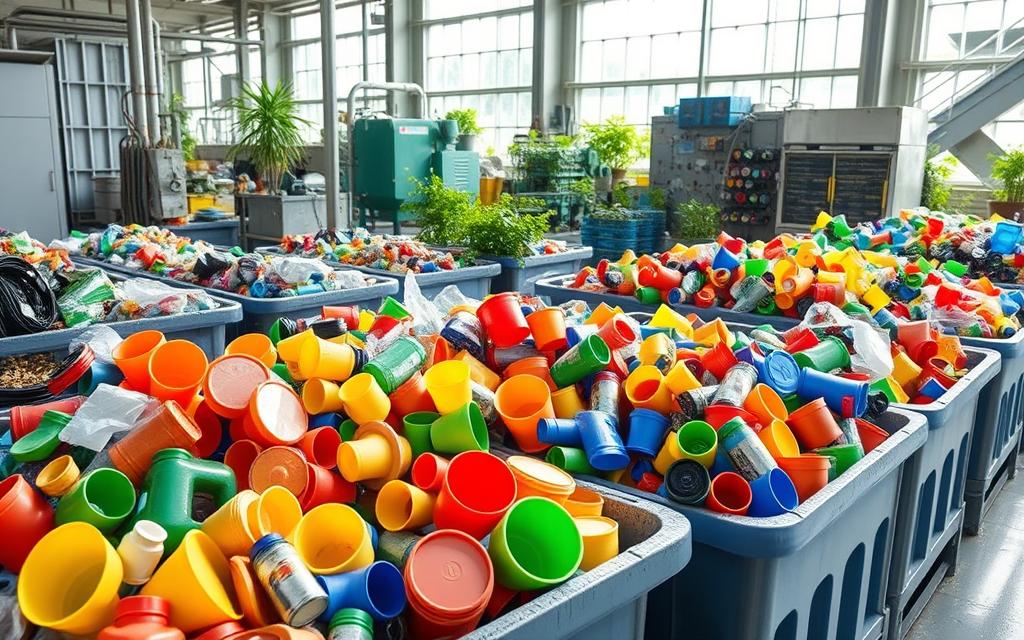
Alternative Ways to Dispose of Plastic Pots
Getting rid of plastic pots is tough when you can’t recycle them the usual way. Gardeners look for better options to avoid waste and help the planet. A good method is taking pots back to local garden centres. They often have plans to reuse these pots. Doing this cuts down on plastic rubbish and helps eco-friendly shops.
Returning Pots to Local Garden Centres
Home Depot and Lowe’s are among the garden centres that recycle pots. Home Depot takes all kinds of plastic pots. Lowe’s does too, including trays. This effort greatly reduces plastic waste. If you can’t take pots back, make sure they’re empty and clean before throwing them away. Clean pots help stop diseases from spreading.
Repurposing and Upcycling Ideas for Plastic Pots
Another great choice is to get creative with old plastic pots. They can be used again for different things in your home and garden. This makes them last longer. Below are some ideas:
- Turn plastic pots into trendy organisers for your desk.
- Use them for growing herbs or succulents inside your house. They add beauty to your space.
- Make one-of-a-kind planters for outside by painting or decorating them.
- Build storage for small items, like screws and nails, or for garden tools.
The key is to take pots back to places that will use them again. This is good for our world. And, try making something new with them at home. These actions make gardening more fulfilling and help us care for our earth. To learn more about recycling pots, visit this guide.
Handling Other Gardening Waste Responsibly
Gardeners are turning to eco-friendly ways to deal with waste. This includes things like plastic bags for soil and tags from plants. These items don’t fit well with regular recycling processes. Knowing how to dispose of them correctly is key to handling gardening waste well.
Recycling Plastic Soil Bags
Recycling soil bags is tricky. They’re often made of different types of plastic and can get dirty. Only some local councils, about 10%, will take them with regular recycling. Gardeners have to find special ways to recycle these bags.
What to Do with Plastic Plant Tags
It’s easy to forget about plastic plant tags, but there are millions out there. They add a lot to the plastic waste from our gardens. But, you can clean them and take them back to garden centres. Some places even have special recycling programs for them. A company called ashortwalk helps make sure these small items are reused.
| Item | Recycling Option | Acceptance Rate by Local Councils |
|---|---|---|
| Plastic Soil Bags | Limited kerbside collection or alternative recycling centres | Approx. 10% |
| Plastic Plant Tags | Return to garden centres or specialised recycling | Varies by centre |
By choosing smart recycling options, gardeners help the planet. They cut down on plastic waste. Every gardener can make a difference in their community by being more sustainable.
The Role of Local Initiatives and Programmes
Local recycling initiatives help communities become more sustainable. Especially with garden plastic items. Programmes increase awareness of being eco-friendly.
These efforts encourage people to recycle more. They also get everyone involved in sustainability.
Community Efforts in Recycling and Sustainability
B&Q has set up over 100 plastic pot recycling stations in the UK. These stations help communities dispose of plastic pots responsibly. This shows B&Q’s commitment to recycling.
Their recyclable products, like the 100% recycled Blacksmith Planter, are a hit. This shows that people want sustainable options.
Engaging with Companies for Better Packaging Solutions
Millennials and Gen Z buy from companies that are eco-friendly. This pushes companies to think about sustainable packaging. Working with manufacturers on compostable materials can cut waste.
B&Q’s recycling efforts are a great example of this. It shows how companies and customers can work together for a greener future. Through talks, they ensure the community’s needs are met, leading to more eco-friendly packaging innovations.
| Initiative | Description | Impact |
|---|---|---|
| B&Q’s Recycling Stations | Over 100 stations across the UK for plastic pot disposal | Increased awareness and community engagement |
| Blacksmith Planter | Planter made from 100% recycled plastic, retail price £4 | Strong consumer response, sold out quickly |
| Sustainable Practices Survey | 2023 Deloitte survey showing priorities for Millennials and Gen Z | Increased influence on career decisions regarding sustainability |
Conclusion
Reflecting on the journey of understanding plastic pots shows us how vital sustainable gardening is. It’s crucial since most plastic pots end up in landfills. Gardeners should think about recycling or finding other eco-friendly options.
Working with local garden centres on recycling or using pots again at home can help reduce plastic waste. The green industry adds a lot to the economy but struggles with lower demand for recycled materials. Yet, we can make a difference by supporting community recycling and choosing eco-friendly options.
Practicing responsible disposal and recycling in gardening helps our environment. It also ensures gardening is in harmony with caring for our planet. This commitment will inspire everyone to work together for a greener future.
FAQ
Can all plastic pots be recycled?
Not all plastic pots can be recycled. It depends on the plastic type. Most places recycle pots made from polypropylene (#5) and polyethylene (#2). But, it’s best to check with your local recycling rules.
How should I prepare plastic pots for recycling?
Clean your plastic pots well before recycling. Soil left in pots can spoil other recyclables. Just use warm, soapy water to make sure they’re clean. This helps them get recycled more easily.
What alternatives are there if my local recycling facility doesn’t accept plastic pots?
If recycling isn’t possible locally, take pots back to garden centres. Many will reuse them. You can also use old plastic pots for DIY projects. They’re great for organising or decorating.
Are other plastic gardening items recyclable?
Yes, items like soil bags and plant tags can also be recycled. Soil bags however, may get dirty. Small tags need to be clean to be recycled. It’s a bit tricky but doable.
How can local communities improve recycling of gardening plastics?
Communities can help a lot with recycling. Teaching everyone about eco-friendly habits works well. Working together with local governments and businesses for better packaging can also help recycle more.
Why is it important to understand plastic numbers?
Knowing plastic numbers lets you know what can be recycled. This knowledge helps you choose better and recycle your gardening plastics correctly.

